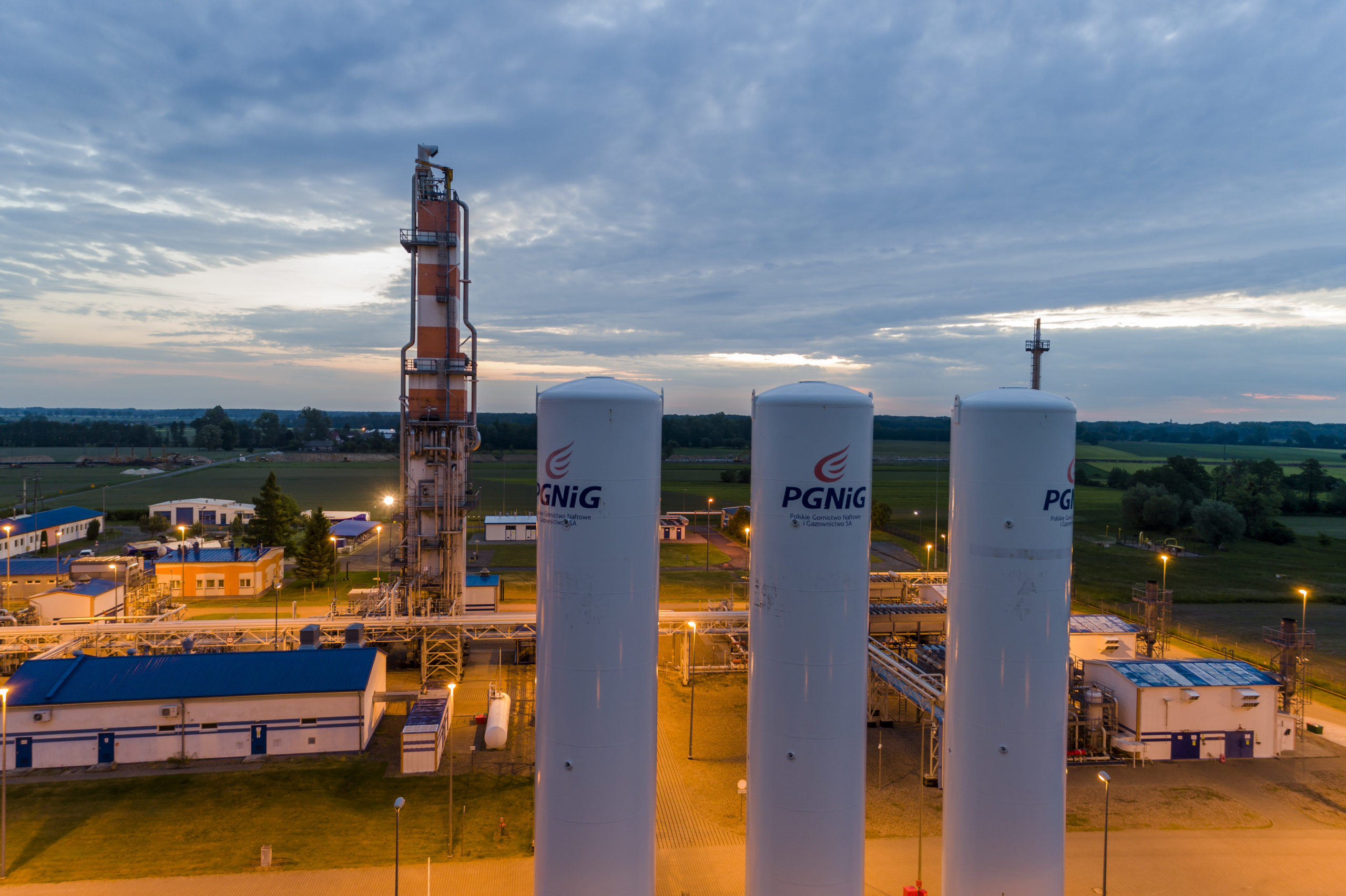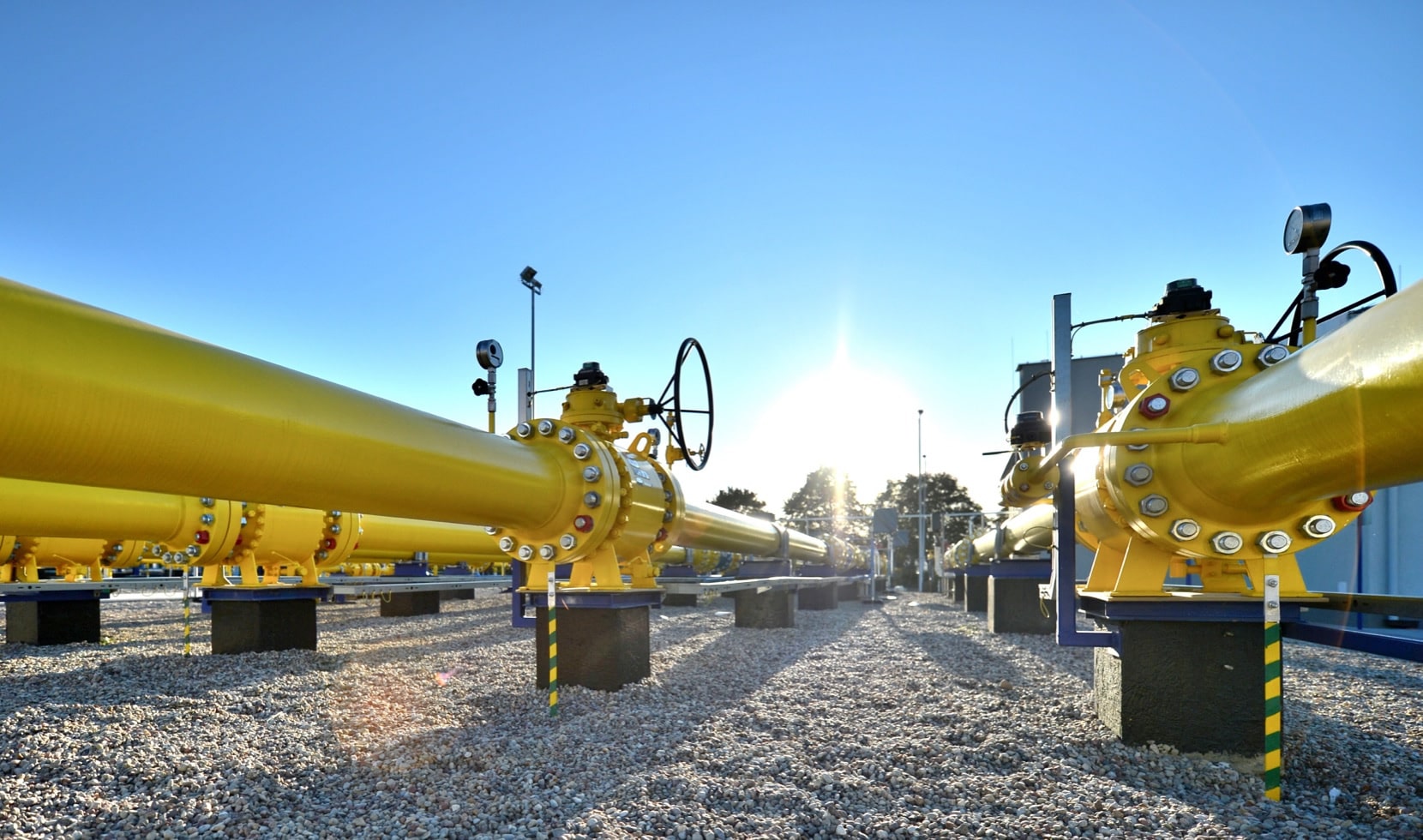The unprecedented surge in commodity prices since September 2021 and the level of price tariffs approved for the fourth quarter of 2021 and for 2022 have caused the cash requirements of companies to rise as a result of an increase in liabilities under gas purchases, high volumes of gas stocks held in underground storage facilities, and increased margin requirements for gas trading exchange and financial transactions.
In December 2021, PGNiG entered into three new credit facility agreements with Bank Gospodarstwa Krajowego, PKO Bank Polski S.A. and CaixaBank S.A. Poland Branch, increasing its ability to mobilise short-term finance for a period of nine months by a total of PLN 2.7bn. Further short-term credit facility agreements were executed in January 2022 with Societe Generale SA Polish Branch (for PLN 750m) and in February 2022 with a bank syndicate of Bank of China Limited, acting through Bank of China Limited Luxembourg Branch, and Bank of China (Europe) S.A., acting through Bank of China (Europe) S.A. Polish Branch (for PLN 1.2bn), with Deutsche Bank Polska S.A. (for PLN 400m) and with Credit Agricole Bank Polska S.A. (for PLN 200m). As a result, as at the date of this Report, PGNiG SA had access to sources of financing totalling PLN 15.25bn.
The Company is monitoring the price and regulatory environment and will take further steps if needed to increase the available sources of financing.
It is keeping a close eye on how the situation is developing and remains in contact with institutions responsible for international financial flows. The PGNiG Group’s financial performance and liquidity will depend on the evolution of commodity prices following the imposition of the sanction regime, which, depending on their scope, may result in reduced supplies to Europe. If any sanctions affecting the settlement of gas supplies are imposed, PGNiG will adapt to the applicable regulations.
PGNiG is also monitoring the situation related to natural gas supplies to the Polish transmission system. Since the beginning of 2022, natural gas has been supplied from across Poland’s eastern border in quantities nominated by PGNiG SA.
The Company has a diversified natural gas portfolio based on its own production sources and import contracts. Thanks to the reserved transmission capacity, PGNiG can source natural gas from various directions, including via the in Świnoujście, from the west and south of Poland. Depending on its balancing needs, the Company books additional interconnector capacities and makes supplementary purchases of gas.
In addition, PGNiG holds stocks of natural gas in underground storage and maintains emergency stocks, which remain at the disposal of the Minister of Energy.
The PGNiG Group’s priority is to ensure continuous gas supplies to customers in and outside of Poland.
In Ukraine the operates through the PGNiG SA Representative Office in Kiev, the Exalo Drilling Group (Exalo Drilling Ukraine LLC) and LLC Karpatgazvydobuvannya (exploration and production activities carried out in cooperation with ERU Management Services). As at the date of this Report, the value of assets engaged in Ukraine did not represent a material part of the Group’s total assets. Employees of the PGNiG Group and their families have been evacuated from areas at risk of being affected by the military conflict. The PGNiG Group is actively involved in the provision of humanitarian aid.


